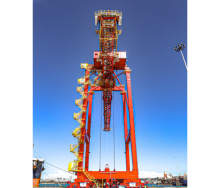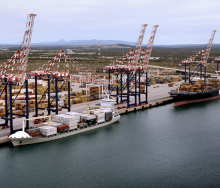Seafarer salaries have continued to rise across the globe as the shortage of competent seafarers affects the shipping industry across all sectors.
And with a surplus of job offers available, seafarers can afford to be picky, choosing positions based not only on salary but on issues such as a more convenient joining date or a fleet with younger vessels.
These are among the findings highlighted in the 2024 Seafarers’ Survey by Danica Crewing Specialists, which asked more than 50 questions in its annual crew questionnaire.
According to the survey, wages increased on all vessel types and Indian senior officers on dry cargo vessels continue to receive the highest wages – some 10% higher than their Eastern European and Filipino peers, who are remunerated at approximately equal levels at senior ranks.
However, Filipino junior officers are paid less than their Eastern European and Indian peers. Senior ratings (Bosun, Fitter, Pumpmen and cooks) remain in demand and this is also reflected in increasing wages.
Announcing the survey results in Manila, Philippines, this week, Danica Crewing Specialists CEO, Henrik Jensen, said the shortage of competent seafarers was driving up salaries.
“The combination of a general shortage of, and a hunt for, well-competent seafarers, along with a better financial situation for most vessel owners at present, is making employers more generous with their remuneration and causing wages to continue to increase.”
He said due to the shortage of senior officers, some ship owners were accepting new hands directly employed in a rank higher than their last rank with their previous employer.
“And we are seeing a steep increase in CVs with fake experience. Seafarers are using certain ‘consultants’ to help with crafting these fake CVs and the level of falsification is rather advanced,” Jensen warned.
A total of 58% of seafarers said they had changed employer at least once over the previous three years.
Analysing five years’ worth of Danica’s Seafarers’ Surveys shows that in 2019 25% of crew said they had changed employer for a higher salary, whereas today that figure has risen to 37%. Free access to the internet, newer vessels, better promotion opportunities, and pension plans/medical insurance were also key reasons for switching jobs.
The survey also recorded an increase in crew welfare concerns. In particular, the number of seafarers reporting shortages of food and drinking water continues to be alarmingly high at 25% an increase from 20% in 2019.
Seafarers reporting they had not been paid on time remained high at 35% – only 1% less than in 2023, while 7% said they did not receive their salary in full.
One in eight respondents reported experiencing bullying and harassment at sea, while 35% reported non-compliance with statutory rest hours rules.
The number of seafarers who felt mentally depressed during their last contract increased from 11% in 2023 to 14% in 2024. This year Danica also asked how many seafarers had been prevented from seeing a doctor ashore and 3% said this was the case.
Surveying its strong Eastern European crew network, Danica also asked questions specific to Ukrainian seafarers. It identified that 70% said they would return to Ukraine when the war ended, although the number saying they never planned to return rose to 20% from 12% in 2023.
Danica surveyed its database of almost 70 000 seafarers worldwide as well as other crew via social media. Some 4 868 completed the survey, a drop compared with previous years, which the company attributed to the survey no longer being accessible to Russian crews. The largest number of respondents were from senior ranks.













